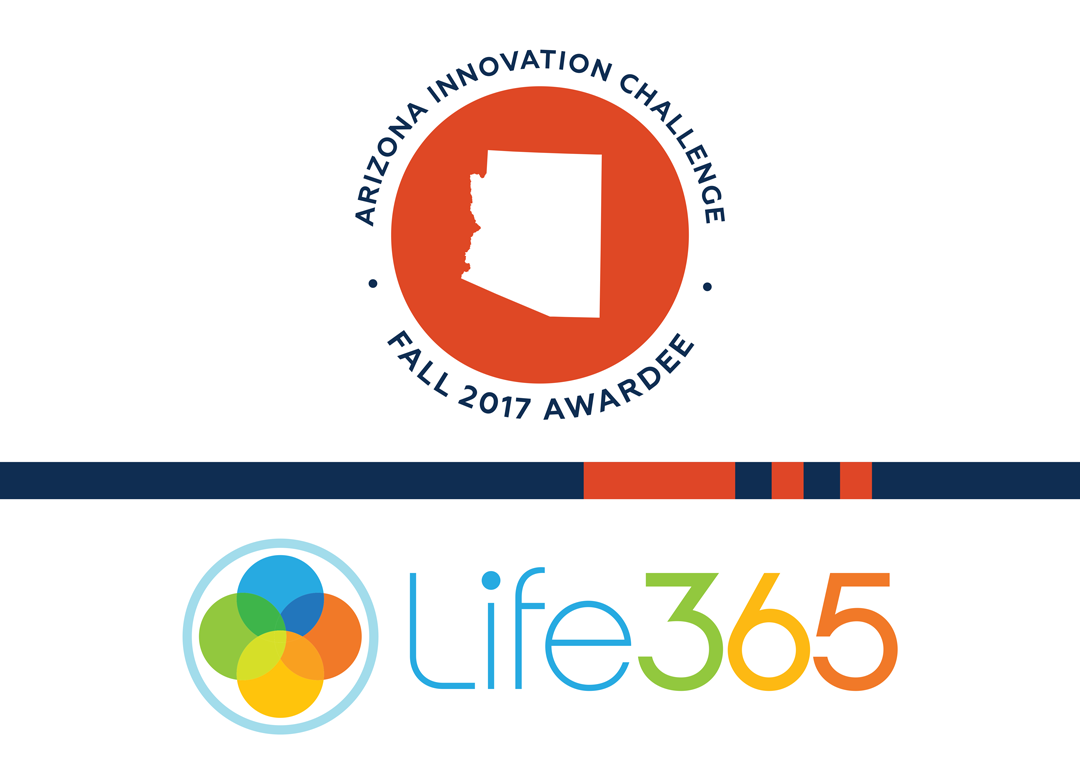Kent Dicks was one of the first people to bring the Internet of Things to healthcare. Now, with his third startup, he’s confident innovation and technology can keep people out of the hospital and reduce health care costs by connecting and monitoring patients in their homes.
Life365, one of the fall 2017 awardees of the Arizona Innovation Challenge, builds on the work of Dicks’ prior company, MedApps. For most patients, that means monitoring their blood pressure, glucose levels, activity or other health indicators at home. The data is given to their health care providers, who can watch for warning signs and provide care before a condition becomes critical.
“We look at the patient, the disease, their age, how adept they are with tech, their economic status and whether they have access to the internet, so we can find the right solution for that patient,” says Dicks, twice named Arizona’s health care innovator of the year. “We take all the solutions that exist today to connect the patient at home, to try to keep them out of the hospital and get the right data to the doctor.”
The system works best for those with chronic conditions, such as diabetes. Congestive heart failure patients are a key target because a hospital is reimbursed less if they return within 30 days. Mobile monitoring can help avoid that. The system also works well with kidney patients who are able to do their dialysis at home and send readings to their doctor or health center.
Early results are impressive. Working with Phoenix-based Catalytics Health Partners and 300 Medicaid patients in Tucson, a test version produced a 65 percent reduction in emergency room visits, a 40 percent drop in hospitalizations and an estimated 30 percent increase in clinical workflow efficiency.
The company is also working with an EMS system to explore how Life365’s technology can enable an ambulance crew to stabilize a patient at their home and monitor them from a distance instead of automatically taking every patient to a hospital.
The full commercial product was completed in November of 2017 and is rolling out now. Dicks expects at least $1.5 million in first-year sales, rising to between $60 million and $70 million in four years.
Dicks has been an Arizona biotech evangelist, presenting at events such as San Francisco’s Biotech Showcase. He pitches his company to investors, while also emphasizing the strength of the state’s health care startups. “Arizona has all the ingredients for a digital health startup to be successful,” he said.
“I want to be able to level the playing field, urban or rural, rich or poor, to all have access to the same quality of care,” Dicks said. “We have all this in Arizona: Spanish speakers, Indians, vets, seniors. There are a lot of things that need to be addressed in typical health care, whether access or cost.”
The Arizona Innovation Challenge will help Life365 meet those challenges more quickly. “We’ll be able to hire employees earlier to propel us,” Dicks said. “It makes us more attractive to investors. I’m really thrilled about it.”
Arizona Innovation Challenge Fall ‘17: Life365 Looks to Improve Lives with Medical Monitoring Platform
April 4, 2018




